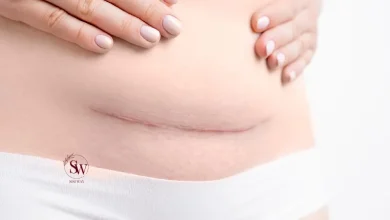How to Get Rid of Acne?
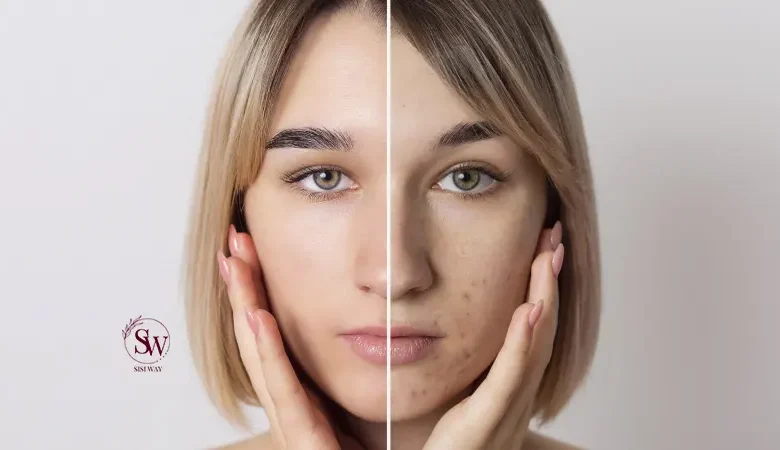
Acne, a common skin condition that affects millions of individuals worldwide, can be both physically and emotionally distressing. While it predominantly affects adolescents, it can persist into adulthood, causing frustration and self-esteem issues. In this comprehensive guide, we will explore effective strategies and proven methods to help you get rid of acne and achieve clearer, healthier skin.
What is Acne?
Before diving into the solutions, it’s crucial to understand the factors that contribute to acne. Acne develops when hair follicles become clogged with oil and dead skin cells, leading to the formation of pimples, blackheads, and whiteheads. Hormonal changes, genetics, and certain lifestyle factors can exacerbate acne, making it imperative to adopt a holistic approach to combat this common skin concern.
What Causes Acne?
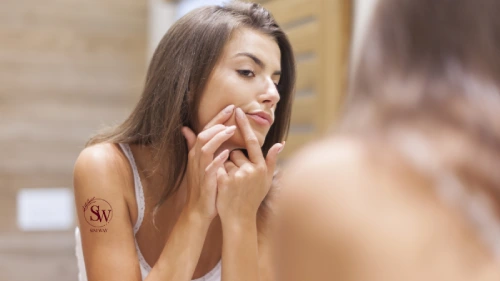
Acne is a multifaceted skin condition influenced by a combination of genetic, hormonal, and environmental factors. Here’s a closer look at the primary causes:
- Hormonal Changes:
- Hormonal fluctuations, particularly during puberty, menstruation, pregnancy, and menopause, play a significant role in acne development. Increased androgen levels stimulate the sebaceous glands, leading to excess oil production and, subsequently, clogged pores.
- Genetic Predisposition:
- Genetics can predispose individuals to acne. If one or both parents experienced acne during their lifetime, there is an increased likelihood that their offspring may also be prone to developing the condition.
- Excess Oil Production:
- Sebaceous glands produce sebum, an oil that helps keep the skin lubricated. However, overproduction of sebum can lead to clogged pores and the formation of acne lesions. This is often more pronounced in individuals with oily skin types.
- Bacterial Growth:
- The skin is home to a bacterium called Propionibacterium acnes (P. acnes). When excess oil and dead skin cells accumulate, P. acnes can multiply, leading to inflammation and the formation of inflammatory acne lesions.
- Clogged Hair Follicles:
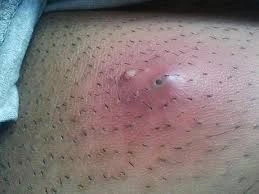
- Acne lesions arise when hair follicles become clogged with a combination of dead skin cells and excess oil. This environment provides an ideal breeding ground for bacteria, contributing to the development of acne.
- Dietary Factors:
- While the link between diet and acne is complex and varies among individuals, some studies suggest that certain dietary choices may influence acne development. High-glycemic foods and dairy products, for example, have been associated with an increased risk of acne in some individuals.
- Environmental Factors:
- Exposure to environmental pollutants, high humidity, and certain skincare and cosmetic products can contribute to acne. It’s essential to be mindful of the products applied to the skin and choose non-comedogenic options.
- Stress:
- Chronic stress can exacerbate acne through the release of stress hormones, such as cortisol, which can stimulate sebum production. Additionally, stress can compromise the immune system, making it more challenging for the body to combat acne-causing bacteria.
Get Rid of Acne
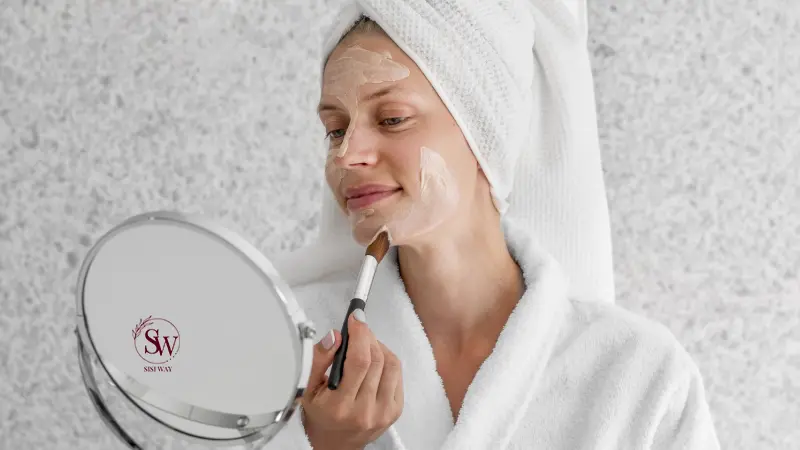
- Maintain a Consistent Skincare Routine:
- Cleansing: Use a gentle, non-comedogenic cleanser to remove dirt and excess oil from the skin.
- Exfoliation: Incorporate a mild exfoliant containing salicylic acid or glycolic acid to unclog pores and promote cell turnover.
- Moisturizing: Choose a lightweight, oil-free moisturizer to keep the skin hydrated without exacerbating acne.
- Choose the Right Products:
- Look for skincare products labeled as “non-comedogenic” or “oil-free” to prevent pore blockages.
- Consider products with active ingredients such as benzoyl peroxide, salicylic acid, or retinoids, known for their acne-fighting properties.
- Maintain a Healthy Diet:
- Consume a balanced diet rich in fruits, vegetables, and whole grains.
- Limit intake of dairy products and high-glycemic foods, as they may contribute to acne development.
- Stay Hydrated:
- Adequate water intake helps flush out toxins and supports overall skin health.
- Regular Exercise:
- Engage in regular physical activity to improve blood circulation and promote healthy skin.
- Manage Stress:
- Chronic stress can trigger hormonal imbalances, leading to acne flare-ups. Practice stress-reducing activities such as meditation, yoga, or deep breathing.
- Avoid Touching or Picking at the Skin:
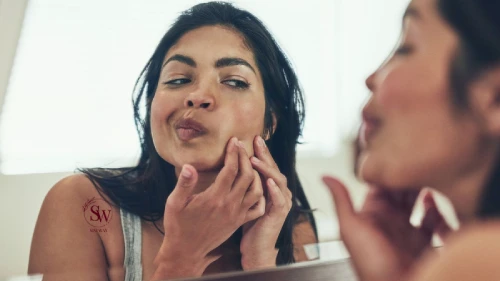
- Touching the face can transfer bacteria and exacerbate acne. Refrain from picking at blemishes to prevent scarring and further inflammation.
- Consult a Dermatologist:
- If over-the-counter products prove ineffective, seek professional advice from a dermatologist. Prescription medications, such as oral antibiotics or topical retinoids, may be recommended.
Also Read: What is a Good Hair Care Routine?
How to Get Rid of Buttocks Acne?
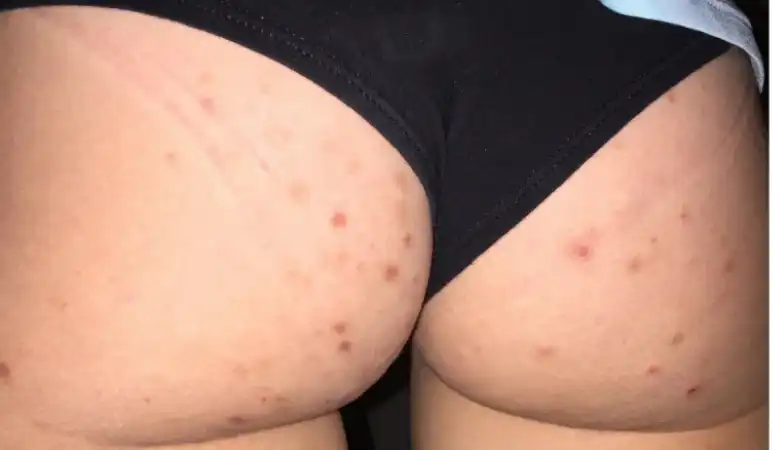
- Use a Gentle Cleanser:
- When dealing with butt acne, start by using a mild, fragrance-free cleanser. Harsh or heavily scented products can irritate the skin and exacerbate acne. Cleanse the affected area during your daily shower routine.
- Wear Breathable Fabrics:
- Opt for breathable, loose-fitting clothing made from natural fabrics like cotton. Avoid tight undergarments or synthetic materials that can trap moisture and contribute to the development of acne.
- Shower After Sweating:
- After intense physical activity or sweating, promptly shower to remove sweat and bacteria from the skin’s surface. This practice helps prevent pores from becoming clogged, reducing the likelihood of butt acne.
- Exfoliate Regularly:
- Incorporate a gentle exfoliating scrub into your routine to slough off dead skin cells and prevent pore blockages. Be cautious not to over-exfoliate, as this can lead to irritation.
- Use Acne-Fighting Topicals:
- Consider applying topical treatments containing ingredients like benzoyl peroxide or salicylic acid. These can help reduce inflammation and target acne-causing bacteria. Apply these products sparingly, as the skin on the buttocks may be more sensitive.
- Avoid Sitting for Prolonged Periods:
- Sitting for extended periods can contribute to friction and heat, promoting the development of butt acne. Take breaks, stand, and move around regularly, especially if you have a sedentary lifestyle.
- Choose the Right Laundry Detergent:
- Opt for a hypoallergenic and fragrance-free laundry detergent when washing your underwear and clothing. Residue from harsh detergents can irritate the skin and worsen acne.
- Practice Good Hygiene:
- Shower regularly, particularly after activities that induce sweating. Keeping the buttock area clean is essential for preventing the accumulation of sweat, bacteria, and dead skin cells.
Addressing Hormonal Acne:
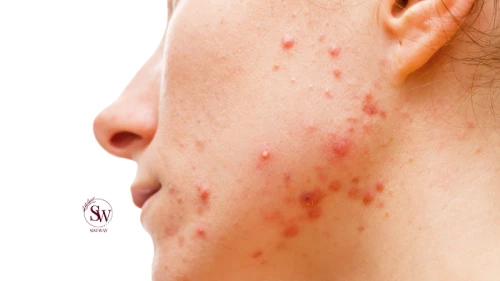
Hormonal acne, often characterized by deep, cystic lesions, is a specific type of acne linked to hormonal fluctuations, particularly changes in androgen levels. While it can be challenging to manage, there are targeted approaches to alleviate hormonal acne symptoms:
- Oral Contraceptives:
- For individuals whose hormonal acne is influenced by fluctuations in estrogen and progesterone, oral contraceptives (birth control pills) may be a viable option. These medications can regulate hormonal imbalances and reduce the severity of hormonal acne.
- Anti-Androgen Medications:
- Medications that block the effects of androgens, such as spironolactone, are sometimes prescribed for hormonal acne. Spironolactone can be effective in reducing oil production and preventing hormonal breakouts.
- Topical Retinoids:
- Prescription-strength topical retinoids, such as tretinoin, adapalene, or tazarotene, can help regulate cell turnover, preventing the formation of comedones and reducing inflammation associated with hormonal acne.
- Professional Chemical Peels:
- Dermatologists may recommend chemical peels containing alpha or beta hydroxy acids to exfoliate the skin’s surface, unclog pores, and promote a more even complexion. Chemical peels can be particularly beneficial for managing hormonal acne.
- Blue Light Therapy:
- Blue light therapy, which targets and destroys acne-causing bacteria, can be effective in managing hormonal acne lesions. This non-invasive treatment option is often available in dermatology clinics.
- Prescription Antibiotics:
- In cases where hormonal acne leads to inflammatory lesions, oral antibiotics may be prescribed to reduce bacteria and inflammation. Antibiotics can be particularly helpful in combination with other treatments.
FAQ:
- Are there specific foods that can worsen acne?
Certain studies suggest that high-glycemic foods and dairy products may contribute to acne development. It’s advisable to maintain a balanced diet and observe how your skin reacts to different food groups.
- How long does it take for acne treatments to show results?
The timeline for improvement varies among individuals. While some may see results within a few weeks, others may require several months. Consistency in following the recommended skincare routine is key.
- Can hormonal changes during menstruation affect acne?
Yes, hormonal fluctuations, especially during menstruation, can contribute to acne flare-ups. Managing stress, maintaining a healthy lifestyle, and consulting a dermatologist for hormonal therapies may be beneficial.
Conclusion:
Achieving clear and healthy skin requires a multifaceted approach that includes proper skincare, a balanced diet, and lifestyle modifications. By incorporating the strategies outlined in this comprehensive guide, individuals can effectively combat acne and regain their confidence. Remember, patience and consistency are crucial on the journey to clearer skin. If persistent issues arise, consulting with a dermatologist ensures personalized guidance and tailored treatment options.


